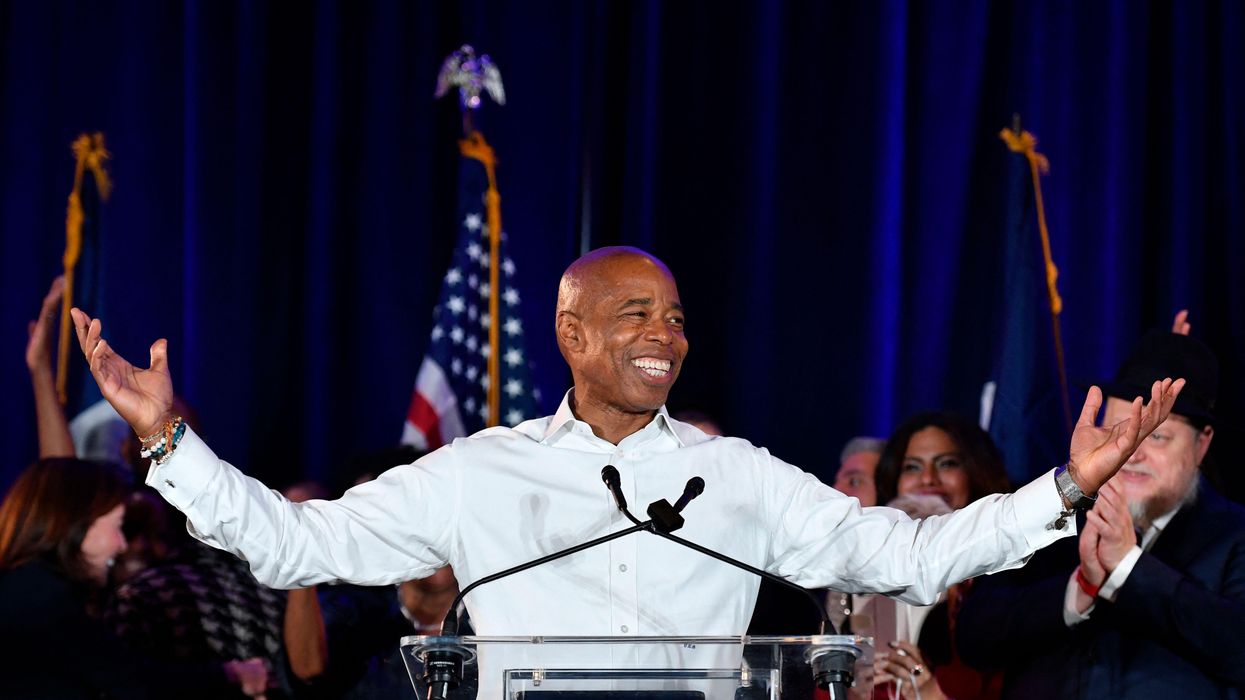Brendan Carroll, a senior at Saint Francis Prep in Fresh Meadows, N.Y., is an ambassador for Students for Open Primaries.
Eric Adams was just elected mayor of New York with 70 percent of the general election vote and he promises to govern with a "mandate." Yet, there are over a million independently registered voters in the city who had no hand in choosing him as the leading candidate. Many of them, like me, are young voters.
Though I am not of voting age yet, I was able to pre-register at my local DMV upon receiving my driving permit. When prompted to choose a party, I was tempted to choose that with which I associate more commonly, but if the previous years had taught me anything, it's that partisan politics are an unpredictable, polarized game led by mostly self-serving politicians. Partisan divides were already wreaking havoc on all walks of life, and it seemed to me very few wanted to consider issues from all possible angles.
I joined nearly half of millennials and Gen Z voters by signing up as an independent, pleased that my freedom from a party would allow me more opportunity to dictate my own path of civic engagement and limit the amount of implicit bias I would pick up from polarized splits. Little did I know, my decision could fetter me to a future of apathetic votes in general elections, in which I had only scale-tipping power for candidates whom I felt no true proclivity towards. As such, this future will likely produce a generation of discouraged voters like myself, most of whom would become biased not against one party, but elections and the political sphere as a whole.
That's because in New York today, our primary elections silo party voters and shut out independents like me as well as third-party voters entirely. Ironic for a state that has lately prided itself on voting innovations. Twenty-three percent of registered New York voters cannot participate in primary elections at all, despite paying for them with their tax dollars, because they are not registered as Democrats or Republicans. For example, Republicans, who are only 10 percent of registered voters in the city, get the city to pay for an election that they alone can participate in. Make sense so far?
Now it's a pyrrhic victory for those handful of Republicans left in our city, who get "their" primary, because in the end we all know it's the Democratic primary that really counts. With 67 percent of the city's voters registered Democrats, it's almost always the Democratic primary that determines the eventual winning politician. Which is why most New Yorkers were talking about the Democratic mayoral candidate, former Brooklyn Borough President Eric Adams, as New York's next mayor long before Election Day. He will now represent and make decisions for every New Yorker — though 33 percent of all registered voters never even had the chance to legitimately weigh his candidacy against any others. We need a new direction.
Across the country, most cities have already enacted nonpartisan primaries. Over three quarters of U.S. cities use open, nonpartisan elections, including 23 of the 30 largest cities in the country. New York is in the small minority of cities that have failed to do so. In a nonpartisan primary, all the candidates are on one ballot and all the voters vote, with the top vote-getters moving on to the general election. In those cases, every election seeks the participation of every voter, they are far more competitive with real choices for the voters, and the elected officials that emerge from the general election are compelled to govern for everyone, not just the partisans in their party.
Would Eric Adams be our next mayor if every eligible voter had a chance to weigh in? Who knows. But we can say with certainty that every politician that comes out of an electoral system that disenfranchises directly or indirectly so many New Yorkers lacks the standing to govern for all of us.
New York has started a process of making its elections more equal and fair. But as long as we continue to administer outdated, closed and partisan primaries, New Yorkers will continue to be divided and unequal. And our elected leaders won't have the true mandate they need to govern effectively.
It's time to let all New Yorkers' votes really count for the candidates they stand behind in every public election.




















